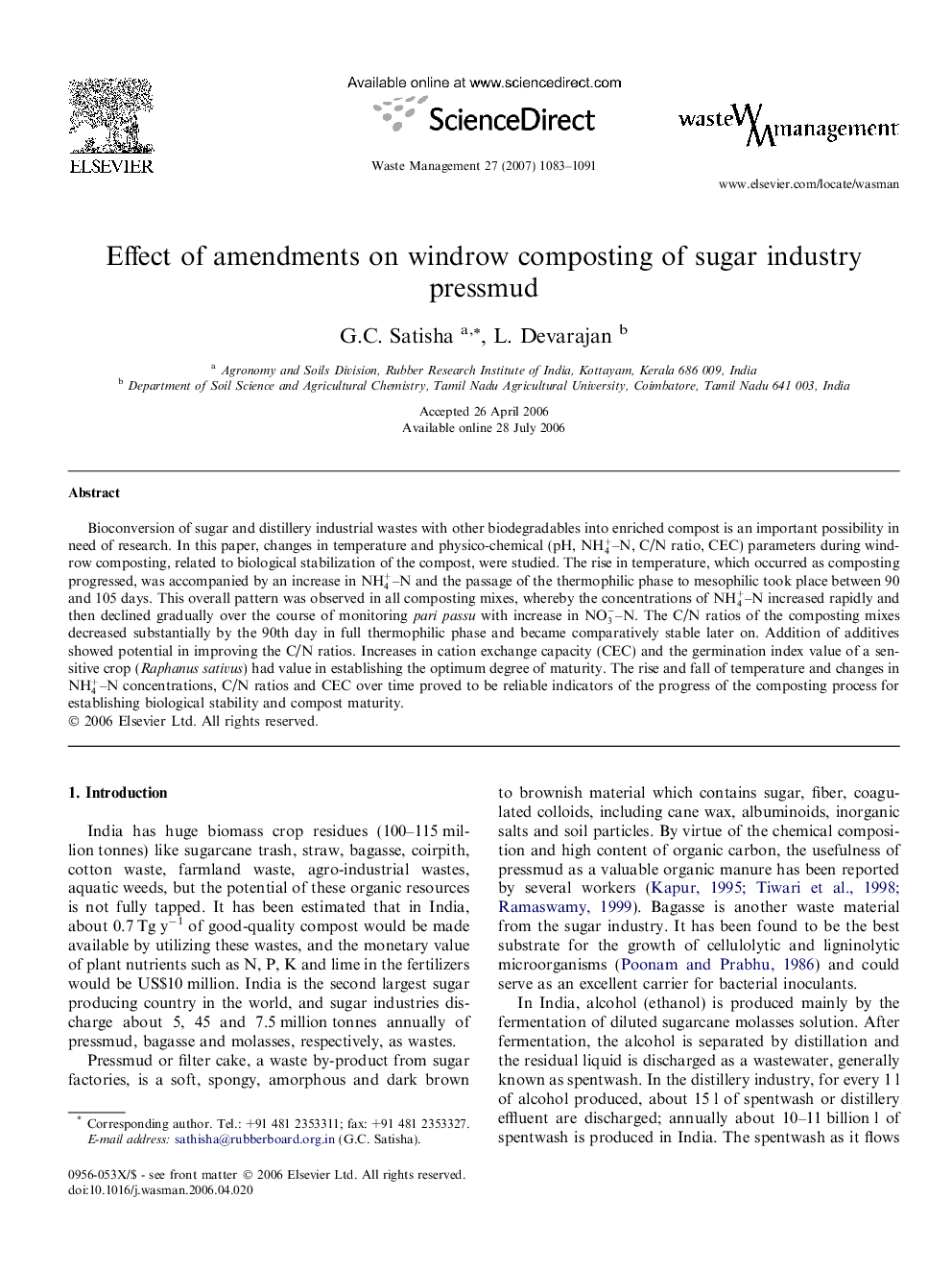| Article ID | Journal | Published Year | Pages | File Type |
|---|---|---|---|---|
| 4474102 | Waste Management | 2007 | 9 Pages |
Bioconversion of sugar and distillery industrial wastes with other biodegradables into enriched compost is an important possibility in need of research. In this paper, changes in temperature and physico-chemical (pH, NH4+–N, C/N ratio, CEC) parameters during windrow composting, related to biological stabilization of the compost, were studied. The rise in temperature, which occurred as composting progressed, was accompanied by an increase in NH4+–N and the passage of the thermophilic phase to mesophilic took place between 90 and 105 days. This overall pattern was observed in all composting mixes, whereby the concentrations of NH4+–N increased rapidly and then declined gradually over the course of monitoring pari passu with increase in NO3-–N. The C/N ratios of the composting mixes decreased substantially by the 90th day in full thermophilic phase and became comparatively stable later on. Addition of additives showed potential in improving the C/N ratios. Increases in cation exchange capacity (CEC) and the germination index value of a sensitive crop (Raphanus sativus ) had value in establishing the optimum degree of maturity. The rise and fall of temperature and changes in NH4+–N concentrations, C/N ratios and CEC over time proved to be reliable indicators of the progress of the composting process for establishing biological stability and compost maturity.
